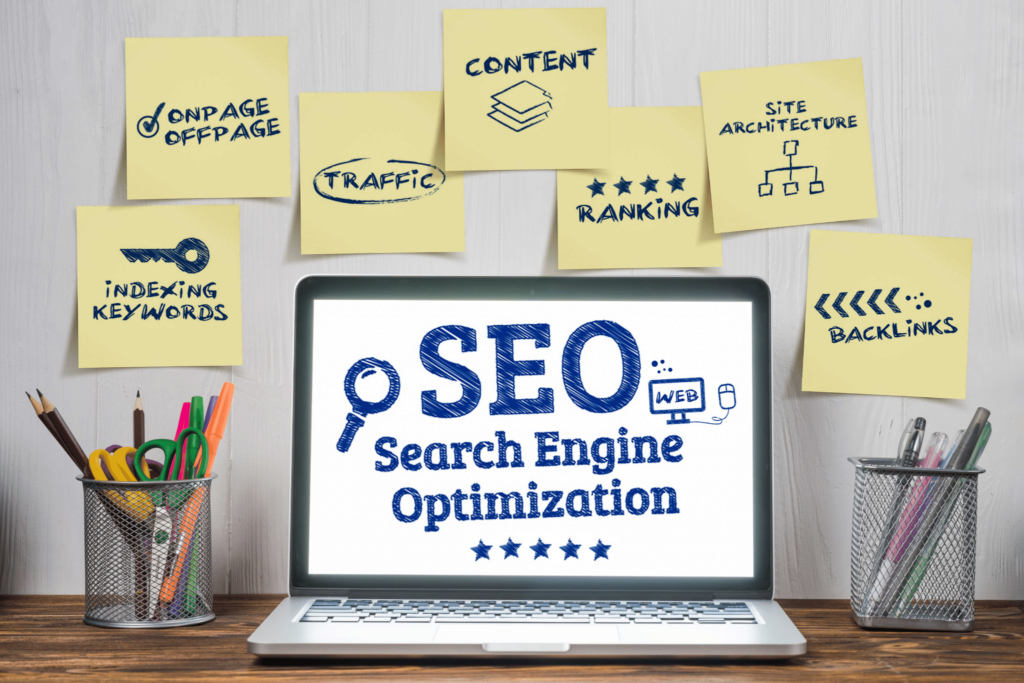
Why SEO is Important for Product-Based Company's Websites
In today’s digital age, having a strong online presence is crucial for the success of any business, especially for product-based companies. One essential aspect of online visibility is search engine optimisation (SEO). In this blog post, we will explore why SEO is vital for product-based company’s websites and how it can help drive organic traffic, increase brand awareness, and boost sales.
Introduction
In an increasingly competitive online marketplace, product-based companies need to ensure their websites are easily discoverable by potential customers. SEO is the process of optimising a website to rank higher in search engine results, thereby increasing visibility and attracting organic traffic. Let’s delve into why SEO is a game-changer for product-based companies.
1. Enhanced Visibility and Organic Traffic
One of the primary goals of SEO is to improve a website’s visibility in search engine results pages (SERPs). When users search for products related to a company’s offerings, a well-optimized website has a higher chance of appearing on the first page. Higher rankings translate into increased organic traffic, as users are more likely to click on websites that appear at the top of the results.
2. Targeted Audience Reach
SEO allows product-based companies to target specific keywords and phrases relevant to their offerings. By conducting thorough keyword research and incorporating these keywords naturally into website content, companies can attract a highly targeted audience actively searching for their products. This targeted reach increases the likelihood of attracting qualified leads and potential customers.
3. Increased Brand Awareness and Credibility
When a product-based company’s website consistently appears at the top of search engine results, it fosters a perception of credibility and authority. Users tend to trust websites that rank highly, which contributes to increased brand awareness. By optimizing website content and implementing effective SEO strategies, companies can establish themselves as industry leaders and build a reputable brand image.
4. Improved User Experience
User experience (UX) is a critical factor in SEO. Search engines prioritize websites that provide a positive user experience, such as fast page loading times, mobile responsiveness, and easy navigation. Optimizing website design and structure, along with delivering valuable content, ensures that visitors have a seamless browsing experience. Positive user experiences lead to increased time spent on the site, lower bounce rates, and higher chances of conversions.
5. Competitive Advantage
In the highly competitive landscape of product-based companies, SEO can provide a significant competitive advantage. By outranking competitors in search engine results, a company’s website gains more visibility and exposure. When potential customers consistently see a company’s website listed above others, it establishes the company as a top choice in their minds, leading to increased brand recognition and potential sales.
6. Cost-Effective Marketing Strategy
Compared to traditional marketing methods, SEO is a cost-effective strategy for product-based companies. While paid advertising can deliver immediate results, it requires ongoing investment. On the other hand, SEO provides long-term benefits. Once a website achieves high rankings through optimization efforts, organic traffic continues to flow without direct advertising costs, making SEO a sustainable and cost-efficient marketing approach.
7. Localization and Targeting Specific Markets
For product-based companies targeting specific geographical regions or markets, local SEO is invaluable. By optimizing website content for location-based keywords and incorporating local business information, companies can improve their visibility in local search results. This is particularly beneficial for businesses with physical stores or those catering to specific regions, allowing them to reach their target audience more effectively.
8. Data-Driven Insights and Analysis
SEO provides valuable data and insights about website performance, user behavior, and keyword effectiveness. Through tools like Google Analytics, companies can track important metrics, including organic traffic, bounce rates, conversion rates, and more. These insights help companies understand their target audience better, refine their marketing strategies, and make data-driven decisions to improve overall website performance.
Optimising your website for search engines is like laying a solid foundation for your product-based company’s online success. It’s the key to unlocking visibility, attracting the right audience, and ultimately driving growth and sales.
Conclusion
In the competitive online landscape, product-based companies cannot afford to overlook the importance of SEO. By implementing effective optimization strategies, companies can enhance their visibility, attract targeted traffic, increase brand awareness, and ultimately drive sales. SEO provides a cost-effective and sustainable marketing approach that can help product-based companies thrive in the digital marketplace.
FAQs (Frequently Asked Questions)
1. How long does it take to see results from SEO efforts? The timeframe for seeing SEO results can vary depending on various factors such as the competitiveness of keywords, website authority, and the extent of optimization efforts. Generally, it takes several months to start noticing significant improvements in rankings and organic traffic.
2. Can product-based companies benefit from local SEO? Absolutely! Local SEO is highly beneficial for product-based companies, especially those targeting specific geographical regions or markets. Optimizing for location-based keywords and providing local business information helps companies reach their target audience in specific areas effectively.
3. Is SEO a one-time process or an ongoing effort? SEO is an ongoing process. Search engine algorithms are constantly evolving, and competitors are continuously optimizing their websites. To maintain and improve rankings, product-based companies should regularly monitor their SEO strategies, adapt to algorithm changes, and refine their optimization efforts.
4. Are there any penalties for improper SEO practices? Search engines like Google penalize websites that engage in improper SEO practices, such as keyword stuffing, cloaking, or buying low-quality backlinks. It’s crucial for product-based companies to follow ethical and white-hat SEO practices to avoid penalties and maintain a good online reputation.
5. How can I measure the success of my SEO efforts? Measuring the success of SEO efforts involves analysing various metrics, including organic traffic, keyword rankings, conversion rates, and engagement metrics. Tools like Google Analytics and Google Search Console provide valuable data to evaluate the performance of SEO campaigns and make data-driven decisions.